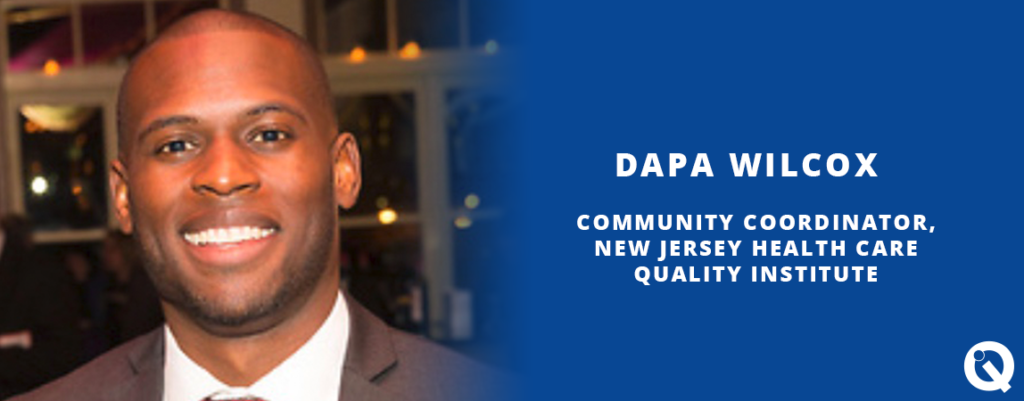Dapa D. Wilcox is the Community Coordinator for the Quality Institute.
Can you outline your role at the Quality Institute?
I help advance the Quality Institute’s community-based initiatives, including the Mayors Wellness Campaign and the Conversation of Your Life (COYL) programs, through educating, engaging, and working closely with community members, elected officials, volunteers, and other key stakeholders. I also support our communications team with social media and other digital platforms.
How does your prior experience in health care inform your work?
As a Patient Liaison in the Emergency Department at Hoboken University Medical Center, I would visit and get to know patients on a deeper level, which translated into gaining a better understanding of how patients want to be treated when they’re at their most vulnerable. Also, I gained a greater appreciation for our frontline health care workers while in that role.
How does your experience translate to what you’re doing for the Mayors Wellness Campaign and COYL?
In my capacity as a Community Outreach Liaison on the Cancer Committees at the Christ Hospital in Jersey City and Bayonne Medical Center, I joined the Quality Institute’s Hudson County COYL Task Force. That was my first introduction to the Quality Institute and the COYL program. Each Task Force includes local officials, health care providers, volunteers, local health departments, senior center leaders, clergy, or librarians. My work with COYL, planning events throughout Hudson County, helped me realize that community programming must be tailored to each community. What might resonate with one community may not with another. I am looking forward to increasing cultural diversity within the COYL and Mayors Wellness Campaign programs.
What do you think is most important about the COYL program?
I’ve witnessed family members and loved ones pass away from illnesses in their twenties, and I’ve seen loved ones repeatedly placed on life-sustaining treatments in their eighties. In both cases, they were no longer able to speak for themselves. Did they want the level of care they received? The conversations with my family members often revolve around the question, “Is this what they would have wanted?” If they had voiced their end-of-life care plans and wishes that would have helped to guide our family.
During an unprecedented public health crisis like such the COVID-19 pandemic, it is especially important to have these conversations with your family and loved ones.
What are some of your interests outside of your work with the Quality Institute?
I’m a big sports guy. When I can’t play them, I love to watch them. Right now, is a tough time for me because I can’t really be out there playing basketball and football, or even watching it. I like to stay very active.

